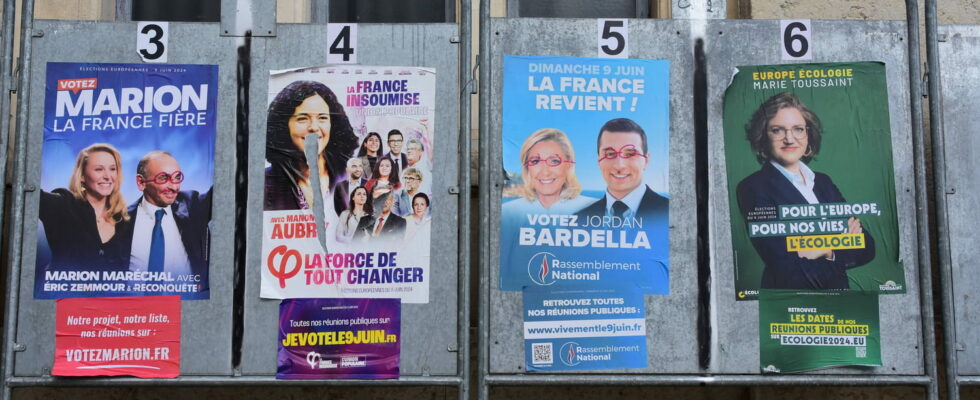The 2024 European elections take place this Sunday June 9 in France. With many ballots missing from polling stations and propaganda received by voters after the end of the campaign, the result should be impacted…
The 2024 European elections take place this Sunday June 9. They have even already started this Saturday in certain overseas territories. And no less than 38 lists are in the running for the ballot. But, between delayed electoral propaganda and missing ballots, the 49.5 million French voters could struggle to exercise their right to vote in good conditions and the results of these European elections could be impacted. As the vote approaches, the organization of these elections raises several concerns.
With the European elections now taking place in less than 24 hours, many voters are complaining about not having received electoral propaganda in their mailboxes on time. According to the Ministry of the Interior, more than a third of them have already received professions of faith and ballot papers from the candidate lists. Beauvau assured this week that “enveloping operations [devaient] be finalized on the Wednesday preceding the vote”, i.e. this Wednesday, June 5, ensuring that they have not noted any “particular difficulties”.
La Poste also assures us that the situation is “normal”. The operator responsible for the delivery of professions of faith told France Info that he distributed the electoral propaganda “as and when the prefectures” transmitted the envelopes to him. But the distribution could continue “until Saturday inclusive”, that is to say in the middle of the electoral reserve period. A tight timing which will not allow all registered citizens to read the programs in good conditions before the vote.
Read also
“Why don’t professions of faith happen in certain neighborhoods?”
Faced with these dysfunctions, voices are already being raised to denounce an attack on the proper democratic conduct of the European elections and therefore on its results in France. Jean-Luc Mélenchon, the boss of La France Insoumise, was outraged during a meeting in Toulouse, before the end of the official campaign, that professions of faith were not arriving in certain neighborhoods. The head of the list Manon Aubry also questioned the conditions for organizing the vote.
And when they receive their envelope full of promises, not all voters have access to all the documents. The costs of printing the propaganda are in fact the responsibility of the lists. Those with fewer resources were not able to send their materials to all homes. The number of professions of faith therefore varies according to the departments, ranging from around twenty leaflets out of 38, in the best case, to around fifteen in places, creating inequality between voters.
But the problems don’t stop there. On voting day, not all 38 candidate lists will be represented in the offices, due to lack of sufficient resources to print the ballots. Voters wishing to vote for these “small” lists will even be obliged to print their ballots themselves. The Pirate Party, for example, is one of the groups to have called on its voters to print their precious ballots themselves, with the site even offering to download a model.
Results distorted by missing or invalid ballots?
Be careful, however: if printing at home, you must use a white A4 sheet, with a weight between 70g/m² and 80g/m², in landscape format, and respect double-sided printing if it is the case for the original bulletin. The ink should be clearly readable with a single color. Constraints which risk discouraging some from voting or which will render certain ballots invalid on Sunday evening when the result of the European elections is established. If your ballot is not considered compliant, your vote will be considered invalid and not counted for the vote.
Printing is in fact the responsibility of the candidate lists for the European elections. However, they need to reach more than 3% of the votes to obtain reimbursement of their campaign costs. A bet that many “small” lists consider lost in advance, when others do not have the necessary cash flow to advance the costs. “This represents around one cent per ballot,” explains Pierre Dieumegard, number 2 on the Esperanto list, to 20 minutes. “We were able to have them printed for around 15% of voters registered on the lists, or a large third of our campaign budget,” he adds.
Beyond the controversies, these failures raise the question of equality in voting. All citizens must be able to access electoral information and have the ballots of the lists for which they wish to vote. Otherwise, the democratic principle is called into question.
